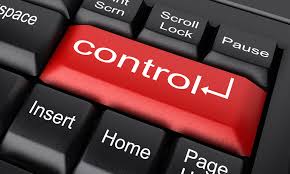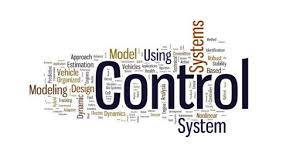
As long as everything else in the world is changing, I’d like to propose an additional change of my own. I say we get rid of the term “comfort zone” and replace it with control zone. After all, that’s what the comfort zone is – actions, thoughts, and attitudes that we have total control over.
Psychologists, neuroscientists and behavioral economists tell us that our brains are prediction machines. Our brains get agitated when we experience unanticipated events (“I wasn’t expecting that!) or misexpected ones (“I was expecting something else!). Basically, we humans don’t like to be surprised.[1]
To avoid surprise, we control. At first this control is quite intentional. We try to order the world around us so that we will know what to expect. Over time, that order feels natural and becomes second-nature as our expectation of control is consistently satisfied. The agitated feeling of surprise gets replaced with calm and relaxed feelings of comfort. A comfortable habit is formed.

Mentally, we also build barriers to keep surprise out of our place of ease. Resistance to learning new things or seeing things in new ways is one barrier. Another barrier to prevent surprise is seeking out information that confirms our points of view and discredits other points of view, i.e. confirmation and disconfirmation biases. Resistance to learning or different perspectives help us stay in the control zone by giving us what we expected, i.e. we see what we expected to see. The more we control the input, the more predictable is the output. That’s why I also like to call the comfort zone the “no curiosity zone.”
It’s interesting that the word “comfort” – com+fort – literally means “near the fort”. And “disease” – dis+ease – literally means a lack of ease. No wonder we love our comfort zones. Emotionally they’re our place of protection. Our place of sanctuary. Our place of wellness. Who knows what kinds of ills lay beyond the walls of the fortress? It’s so much safer to stay inside my world of predictability.

That’s why as a coach, I no longer tell clients to step out of their comfort zone. Now I tell them they need to get outside of their control zone. I ask them to consider one thing that they’re willing to let go of control over as an experiment. The goal of the experiment isn’t to change behavior. The goal is to experience what letting go of an element of control looks and feels like. It’s like a scouting expedition to one area just outside the walls of the fortress to learn what’s there.
Eventually, a series of experiments like these makes it easier for your prediction-machine brain to know what to expect across a much bigger control zone. The walls of the comfortable fortress extend further out and have brought a wider range of behaviors, feelings and perspectives inside.
I love this quote from performance coach Tommy Angelo. You can substitute anything you want to experiment with for the word “meditate”:
“Learning to ________ (meditate) is like learning to dance. If you practice dancing every day, five years from now it won’t matter which dance step you did first, or how awkwardly you did it. Plus, you’ll know how to dance.”
So, are you with me in replacing the phrase “comfort zone” with control zone? These days I’m experimenting with some new approaches to an old hobby to see what I can learn. What will you do to get out of your control zone? Share your experiments in the comments!
[1] Luna, T. & Reminger, L. Surprise. New York: Penguin Group

